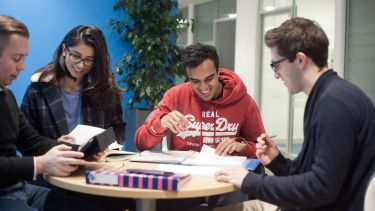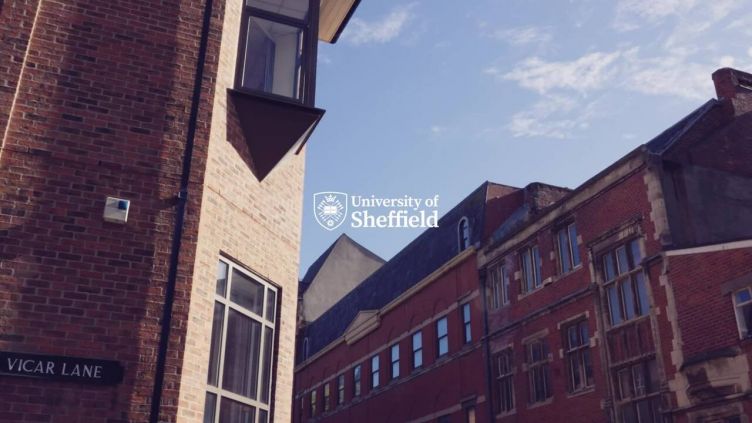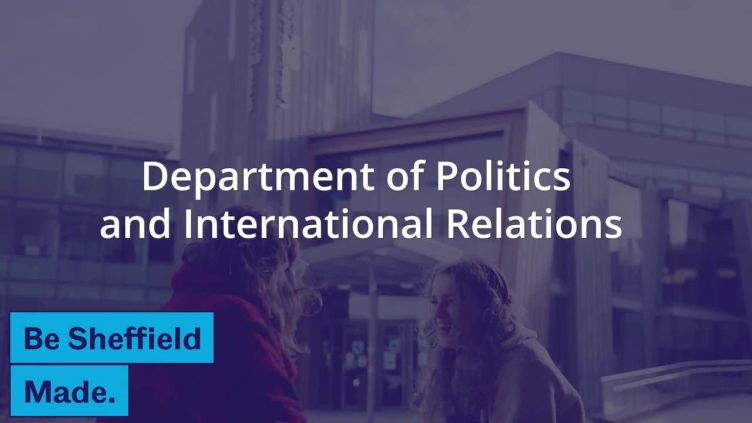Economics and Politics BA
Explore the relationship between economic and political aspects of the modern world in this dual honours degree.
-
A Levels
AAB -
UCAS code
LL12 -
Duration
3 years -
Start date
September
- Course fee
- Funding available
- Optional placement year
- Study abroad
- Dual honours
Explore this course:
Course description
Why study this course?
This degree comes with the opportunity to do a year-long, paid work placement with a leading employer in your second year. You will also be able to do internships, voluntary work and access employability advice and workshops through the ∫˘¬´”∞“µ Economics Employability Development (SEED) scheme.
You’ll be taught by political experts and economists whose modules are informed by their latest research.
Rooted in core economic theory and analysis, with options to broaden the scope of the degree according to your interests.
Our graduates develop the key skills that employers in a variety of fields value. They go on to kick start careers across computing, banking, actuarial work and data science for employers such as Amazon, the Bank of England, Goldman Sachs, IBM, PwC, HM Treasury, the NHS and the Civil Service.

Explore the relationship between economics and politics, how it shapes policy decisions, and informs our daily life.
You’ll analyse political ideas, institutions and practices, developing the quantitative and analytical skills essential for economists.
After a first year spent primarily on micro- and macroeconomic analysis and key political concepts, your second year will see you create your own mix of core and optional modules in both economics and politics.
With the option to complete year-long work placement after your second year, you’ll achieve a balanced understanding of both disciplines as you move into your third year.
Your final year includes a research project in politics and the opportunity to apply your economics skills to contemporary issues and themes in a module on policy and practice.
Dual and combined honours degrees

Modules
UCAS code: LL12
Years: 2026
Economics core modules:
- Microeconomic Analysis and Policy
-
This module introduces you to the fundamental principles of microeconomic theory, focusing on the behaviour and decision-making processes of individuals, households, and firms. You will gain a solid understanding of key microeconomic concepts, such as choice theory, market structures, consumer behavior, and firm decision-making. The module explores the practical application of microeconomic analysis to contemporary policy issues.
20 credits - Macroeconomic Analysis and Policy
-
This module introduces you to the foundations of macroeconomic theory and analysis. You will explore how economies operate at the aggregate level and develop the tools to understand key economic indicators such as interest rates, national output, inflation, and exchange rates. Through real-world examples and policy applications, you will learn how macroeconomic analysis informs and shapes economic decision-making and policy evaluation in national and global contexts.
20 credits
Plus one of the following (module one for those without A Level Maths and module two for those with A Level Maths or equivalent):
- Mathematical Methods for Economics 1
-
This is a core module designed for students who do not have an A-Level in Mathematics or equivalent. It will provide you with specialist support and training to introduce you to relevant key elements of maths taught at A-Level. You will learn to apply these elements in ways that are essential for problem solving in economics. The tools you gain from this module will be used throughout the rest of your degree.
20 credits - Mathematical Methods for Economics 2
-
This module is designed for students with an A-Level in Mathematics (or an equivalent qualification). You will revisit key mathematical tools covered in A-Level Mathematics (such as differential calculus) and learn to use them to formulate and solve problems in economics and finance. You will also be introduced to other techniques that are essential for problem solving in economics. These tools will be used throughout the rest of your degree. The topics covered include: sequences/series and the economics of finance, functions, univariate optimization, elasticity, integration, multivariate optimization, constrained optimization, and matrix algebra.
20 credits
Politics core modules:
- Political Analysis 1: An Introduction to Research and Scholarship
-
As the first part of three key modules taken throughout your degree, Political Analysis 1 will introduce you to the study of politics as an academic discipline.
20 credits
You will discover different ways to research the dynamics of different political worlds and acquire the foundational knowledge and skills needed to build, test and evaluate rigorous accounts of political problems.¬Ý
Throughout the module, you will learn through a combination of lectures and seminars. You will also undertake independent study to delve deeper into the case studies of political scandal and failure discussed each week.¬Ý - Thinking Politically: Key Concepts
-
A concept is a general idea about something. We use concepts all the time to make sense of the world. For example, we use the concept of a 'table' to describe a piece of furniture with a flat top and some legs to keep it stable. We also use concepts to make sense of our experiences and not just to describe 'things'. For example, we talk about a painting being 'beautiful' or a tyrant being 'cruel'. ¬Ý
20 credits
In this course, you will be introduced to a range of core concepts that inform the study of politics and international relations in the twenty-first century: politics, authority, power, democracy, rights, justice, freedom, nations, the distinction between refugees and migrants, and populism. ¬Ý
You will discover how these concepts shape our understanding of the political world around us, and learn how to engage in conceptual analysis (i.e. how to argue about how we should understand each of these concepts). By the end of the module, you will have learnt to problematise and evaluate events, information, and academic literature, enabling you to successfully and critically use key concepts in political debate.
Plus one optional module:
- British Politics
-
You will be introduced to the key concepts and debates that have shaped British politics with an emphasis on history, institutions and culture.
20 credits
Each lecture will focus on a specific element of British politics, with subsequent and linked seminars providing an opportunity to deepen this knowledge by looking at critical case studies or official reviews.
This module provides key employability skills and practice based knowledge through a focus on the theory and practice of political decision-making processes and the challenges of implementing policy. - Introduction to Global Political Economy
-
Global political economy (GPE) is a field of study that investigates the interaction between political and economic forces in contemporary and historical capitalism. You will consider key mainstream and critical theories.
20 credits
You will be introduced to major processes of trade, production and exploitation, sketching the power relations of the global economy by using examples of contemporary production in different industries. You will also consider how the political economy of race, class and gender have structured the global economy through histories of colonisation and decolonisation, from the fourteenth to the twenty-first century. - Gender Politics
-
This module aims to interrogate the role of gender and sex in shaping world politics. To do this, it asks how notions of masculinity and femininity shape our institutions, how gender might influence the political problems we prioritise and whose voices are taken seriously in developing responses to these problems.¬Ý
20 credits
Students will answer these questions through the study of the politicisation of sex, the relationship between gender and violence, how current practices of gender are shaped by colonialism and a range of other timely topics that shape the world today.¬Ý
The module will allow students to develop an understanding of different approaches to gender, be introduced to key concepts from feminism and queer theory, learn to apply these ideas practically to a set of case studies and debate what the future of gender is in world politics.¬Ý - The World's Wicked Problems
-
The World's Wicked Problems serves as an introduction to International Relations as a discipline.¬Ý
20 credits
Throughout this module you will engage in key international relations concepts and discussions, including migration, climate change, poverty and global inequalities, sexual violence and armed conflict.
As an introductory module, you have the opportunity to develop the tools needed to understand, analyse and reflect on in-depth theoretical and empirical international relations which shall continue to support you throughout your degree. - Introduction to Western Political Thought
-
During this module, you will be introduced to political theory as a distinctive way of thinking about politics. You will engage with some of the most influential and renowned thinkers from the history of Western political thought, critically analysing questions of power, justice and legitimacy.
20 credits
Through the study of seminal texts, you will be challenged to evaluate historical responses to political questions and thereby start doing political theory for yourself. You will also develop a deeper understanding of various concepts that can be applied to your analyses of contemporary issues throughout the degree.
In your second year, you’ll continue to build upon the foundational knowledge covered in your first year.
Example core modules:
- Intermediate Microeconomics
- Intermediate Macroeconomics
- Statistics and Econometrics
- Political Analysis 2: How to do Empirical Research
You’ll also have the opportunity to explore additional political interests through optional modules covering topics such as autocracies and democracies, migration, Chinese politics, and oppression.
In your third year, you will gain specialist knowledge in applied economics and complete a research project into a political topic of your choice.
Example core modules:
- Economic Policy and Practice
- Politics Research Project
You may also choose from a range of optional modules from both schools. Areas of study in Economics may include international trade, poverty and inequality, environmental economics, and political economy. Politics modules may cover global culture wars, political leadership, armed conflict and the role of corporations in global politics.
The content of our courses is reviewed annually to make sure it's up-to-date and relevant. Individual modules are occasionally updated or withdrawn. This is in response to discoveries through our world-leading research; funding changes; professional accreditation requirements; student or employer feedback; outcomes of reviews; and variations in staff or student numbers. In the event of any change we will inform students and take reasonable steps to minimise disruption.
Learning and assessment
Learning
We provide students with a varied and interactive learning experience. You'll learn by attending lectures and seminars, interactive workshops, tutorials and computer labs. We also incorporate online resources into our teaching, such as online videos, to enhance your studies.
Assessment
This degree is primarily exam-based, however you'll also be assessed by written coursework, computer-based assignments, research projects, presentations and reports to assess the range of knowledge and skills that an economist needs.
Entry requirements
With Access ∫˘¬´”∞“µ, you could qualify for additional consideration or an alternative offer - find out if you're eligible.
The A Level entry requirements for this course are:
AAB
- A Levels + a fourth Level 3 qualification
- ABB + B in the EPQ; ABB + A in Core Maths
- International Baccalaureate
- 34; 33, with B in the extended essay
- BTEC Extended Diploma
- DDD in a relevant subject
- BTEC Diploma
- DD + A at A Level
- Scottish Highers
- AAAAB
- Welsh Baccalaureate + 2 A Levels
- B + AA
- Access to HE Diploma
- Award of the Access to HE Diploma in a relevant subject, with 45 credits at Level 3, including 36 at Distinction and 9 at Merit
-
GCSE Maths grade 6/B
The A Level entry requirements for this course are:
ABB
- A Levels + a fourth Level 3 qualification
- ABB + B in the EPQ; ABB + A in Core Maths
- International Baccalaureate
- 33
- BTEC Extended Diploma
- DDD in a relevant subject
- BTEC Diploma
- DD + B at A Level
- Scottish Highers
- AAABB
- Welsh Baccalaureate + 2 A Levels
- B + AB
- Access to HE Diploma
- Award of the Access to HE Diploma in a relevant subject, with 45 credits at Level 3, including 30 at Distinction and 15 at Merit
-
GCSE Maths grade 6/B
You must demonstrate that your English is good enough for you to successfully complete your course. For this course we require: GCSE English Language at grade 4/C; IELTS grade of 6.5 with a minimum of 6.0 in each component; or an alternative acceptable English language qualification
Equivalent English language qualifications
Visa and immigration requirements
Other qualifications | UK and EU/international
If you have any questions about entry requirements, please contact the school/department.
Graduate careers
School of Economics
Some of our graduates become professional economists in government, industry or the City. Others enter related professions - banking, ‭insurance, accountancy, sales and marketing, and ‭retail management.
Recent graduates are now working for the Bank of England, HM Treasury, the European Parliament, PwC, Deloitte, IBM and Rolls Royce. Some prefer to advance their knowledge by studying economics at postgraduate level.
School of Sociological Studies, Politics and International Relations
A politics degree from ∫˘¬´”∞“µ can set you apart from everyone else. You'll have many opportunities across all levels of your course to add valuable work experience and transferable skills to your CV.
Our degree programmes are designed so you can tailor your course to your own interests and career aspirations. They also provide a foundation to go on to work in a wide range of professional, political and administrative organisations across the world, in local, national, and international government, the charitable sector, education, the media, public relations, research and the private sector.
School of Economics
National Student Survey (NSS) 2024
We have an international reputation for practical and real-world economics.
You'll be taught by some of the top economic experts in their field and you'll receive the latest cutting-edge teaching from people who care passionately about their subject.
Our staff advise government departments in the UK such as the Department for Work and Pensions, the Department for Education, as well as advisory bodies such as the Low Pay Commission. Their research helps shape government policies and aims to improve people's lives. This research also informs what you will be taught in your modules.
The School of Economics is based in Elmfield building, close to The Wave, the new home for the Faculty of Social Sciences. The Wave features state-of-the-art collaborative lecture theatres, study spaces and seminar rooms.
Teaching may take place in Elmfield, The Wave, or in other buildings across campus, many of which are close together so it’s easy to walk between them and it’s a great way to get to know the city. You will also be close to our Students' Union and central libraries.
Facilities
Our state-of-the-art classrooms are in the same building as our staff offices. You'll also have your own social space with computer access.
School of Sociological Studies, Politics and International Relations
Research Excellence Framework 2021
Guardian University Guide 2025
Guardian University Guide 2025
We're proud to be one of the UK’s top departments for research and teaching in politics and international relations. Our academics are recognised internationally for their research expertise and for informing changes to national and international policy.
The Department of Politics and International Relations is based next to the Wave, the new home for the faculty of Social Sciences. The Wave features state-of-the-art collaborative lecture theatres, study spaces and seminar rooms.
Teaching may take place in the Wave, but may also be timetabled to take place within other departments or central teaching space. Many of the University buildings are close together so it’s easy to walk between them and it’s a great way to get to know the city.
School of Sociological Studies, Politics and International Relations
University rankings
A world top-100 university
QS World University Rankings 2026 (92nd) and Times Higher Education World University Rankings 2025 (98th)
Number one in the Russell Group
National Student Survey 2024 (based on aggregate responses)
92 per cent of our research is rated as world-leading or internationally excellent
Research Excellence Framework 2021
University of the Year and best for Student Life
Whatuni Student Choice Awards 2024
Number one Students' Union in the UK
Whatuni Student Choice Awards 2024, 2023, 2022, 2020, 2019, 2018, 2017
Number one for Students' Union
StudentCrowd 2024 University Awards
A top 20 university targeted by employers
The Graduate Market in 2024, High Fliers report
Fees and funding
Fees
Additional costs
The annual fee for your course includes a number of items in addition to your tuition. If an item or activity is classed as a compulsory element for your course, it will normally be included in your tuition fee. There are also other costs which you may need to consider.
Funding your study
Depending on your circumstances, you may qualify for a bursary, scholarship or loan to help fund your study and enhance your learning experience.
Use our Student Funding Calculator to work out what you’re eligible for.
Placements and study abroad
Placement
Recent placements have been with Bank of England, Lloyds Bank, IBM, ASOS and Mercedes-Benz.
Study abroad
Visit
University open days
We host five open days each year, usually in June, July, September, October and November. You can talk to staff and students, tour the campus and see inside the accommodation.
Subject tasters
If you’re considering your post-16 options, our interactive subject tasters are for you. There are a wide range of subjects to choose from and you can attend sessions online or on campus.
Offer holder days
If you've received an offer to study with us, we'll invite you to one of our offer holder days, which take place between February and April. These open days have a strong school focus and give you the chance to really explore student life here, even if you've visited us before.
Campus tours
Our weekly guided tours show you what ∫˘¬´”∞“µ has to offer - both on campus and beyond. You can extend your visit with tours of our city, accommodation or sport facilities.
Apply
The awarding body for this course is the University of ∫˘¬´”∞“µ.
Recognition of professional qualifications: from 1 January 2021, in order to have any UK professional qualifications recognised for work in an EU country across a number of regulated and other professions you need to apply to the host country for recognition. Read and the .
Any supervisors and research areas listed are indicative and may change before the start of the course.




